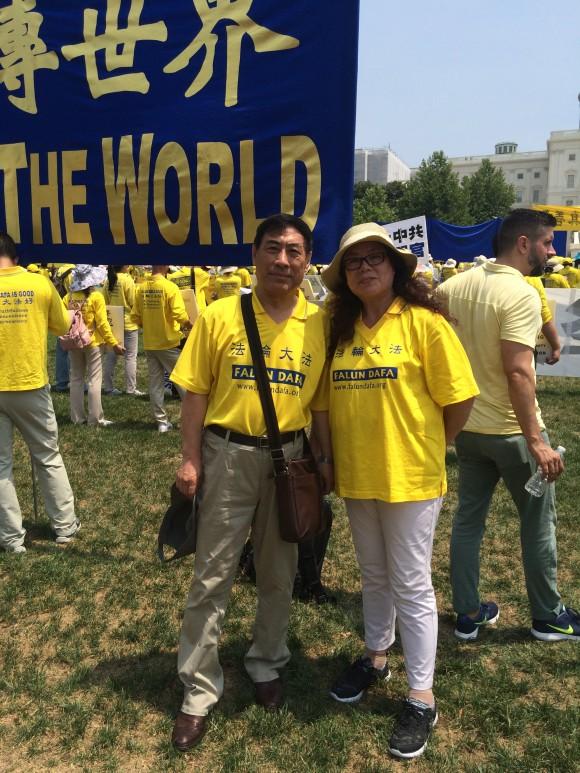WASHINGTON—In the early afternoon of July 20, over 1,000 practitioners and supporters of the Falun Gong spiritual discipline held a parade to protest 18 years of deadly repression by the communist regime in China. The parade goers, mostly wearing Falun Gong’s signature yellow T-shirts, marched from Capitol Hill through downtown Washington, D.C. to the Lincoln Memorial.
This year’s events also included a rally at Capitol Hill and a candlelight vigil before the Washington Monument.
Falun Gong, a spiritual practice that teaches a set of meditation exercises and cultivation of the principles of truthfulness, compassion, and tolerance, was marked for persecution on July 20, 1999, by then-Chinese Communist Party leader Jiang Zemin. Since then, the Chinese authorities have pursued a violent campaign of elimination against the practice.
“The Chinese regime’s persecution has been completely irrational and violent. We petition peacefully. We carry no weapons. We have only kind intentions. But what we face are police, police cars, armed police. The armed police face you as if you are a terrible enemy,” said You Zhaohe, a 64-year-old philosophy professor who came from Beijing to the United States this March.





